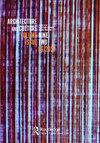Donor-Driven Designs on the University
IF 1.1
0 ARCHITECTURE
引用次数: 1
Abstract
Abstract Universities across the world are increasingly dependent on substantial gifts from the super-rich and their charitable foundations for capital development. The “golden age of philanthropy” compels academic managers to become campaigners and supplicants and rewards those whose research appeals to the philanthropic marketplace. Philanthropy thereby shapes the organization, activities and behavior of the contemporary university. Additionally, it literally shapes campuses. Substantial gifts, arriving as they do on a timeline that suits philanthropists, re-order development priorities, disrupt masterplans, and generally channel funds toward research in the biosciences, health and technology. Consequently, there has been a boom in university laboratory construction since the early 1990s, especially in biomedical research. This paper explores how philanthropy might have specifically architectural effects. Focusing on Atlantic Philanthropies and their investment in the Translational Research Institute, in Queensland, Australia, it is argued that philanthropy produces buildings that are luxurious and ornamented and, in the context of university requirements, ornamental.捐赠者驱动的大学设计
摘要世界各地的大学越来越依赖超级富豪及其慈善基金会的巨额捐款来进行资本开发。“慈善事业的黄金时代”迫使学术管理者成为活动家和恳求者,并奖励那些研究对慈善市场有吸引力的人。慈善由此塑造了当代大学的组织、活动和行为。此外,它还塑造了校园。大量的礼物,按照适合慈善家的时间表送达,重新安排发展重点,打乱总体规划,并通常将资金用于生物科学、健康和技术研究。因此,自20世纪90年代初以来,大学实验室建设蓬勃发展,尤其是生物医学研究。本文探讨了慈善事业如何产生特定的建筑效果。关注大西洋慈善机构及其对澳大利亚昆士兰转化研究所的投资,有人认为慈善机构建造的建筑既豪华又装饰,在大学要求的背景下,还具有装饰性。
本文章由计算机程序翻译,如有差异,请以英文原文为准。
求助全文
约1分钟内获得全文
求助全文
来源期刊

Architecture and Culture
ARCHITECTURE-
CiteScore
0.80
自引率
0.00%
发文量
25
期刊介绍:
Architecture and Culture, the international award winning, peer-reviewed journal of the Architectural Humanities Research Association, investigates the relationship between architecture and the culture that shapes and is shaped by it. Whether culture is understood extensively, as shared experience of everyday life, or in terms of the rules and habits of different disciplinary practices, Architecture and Culture asks how architecture participates in and engages with it – and how both culture and architecture might be reciprocally transformed. Architecture and Culture publishes exploratory research that is purposively imaginative, rigorously speculative, visually and verbally stimulating. From architects, artists and urban designers, film-makers, animators and poets, from historians of culture and architecture, from geographers, anthropologists and other social scientists, from thinkers and writers of all kinds, established and new, it solicits essays, critical reviews, interviews, fictional narratives in both images and words, art and building projects, and design hypotheses. Architecture and Culture aims to promote a conversation between all those who are curious about what architecture might be and what it can do.
 求助内容:
求助内容: 应助结果提醒方式:
应助结果提醒方式:


